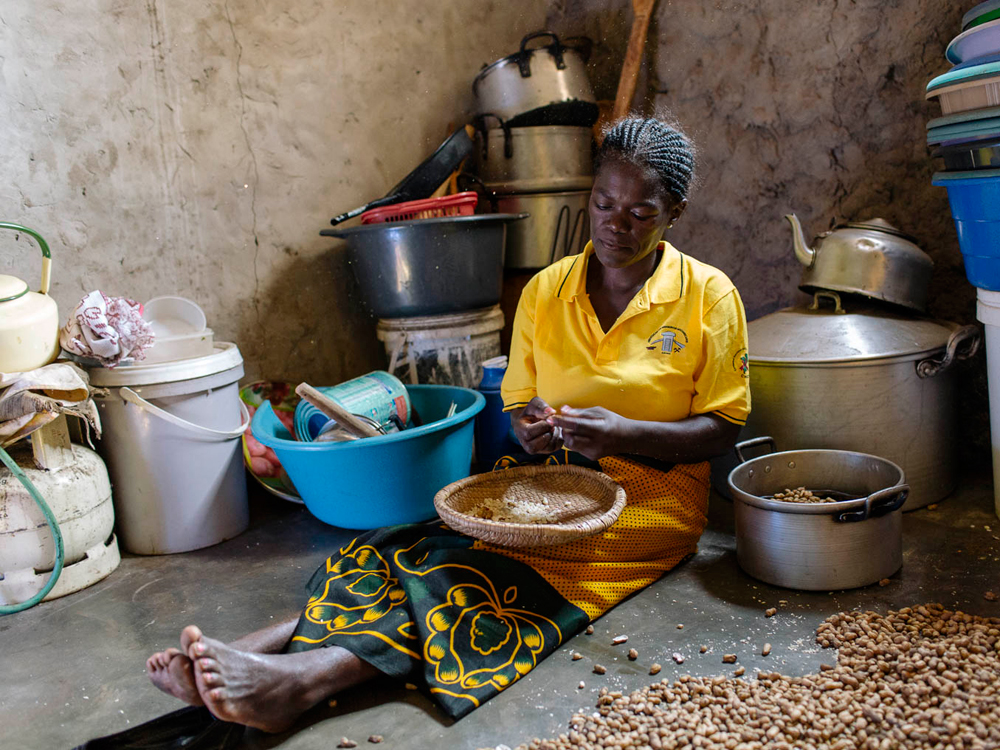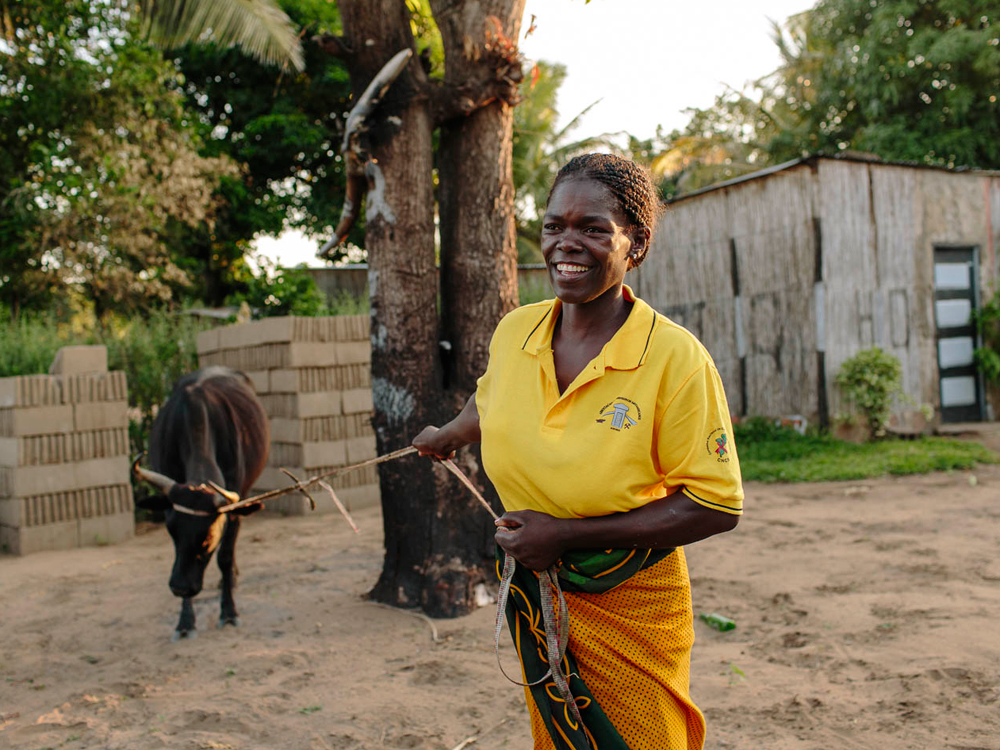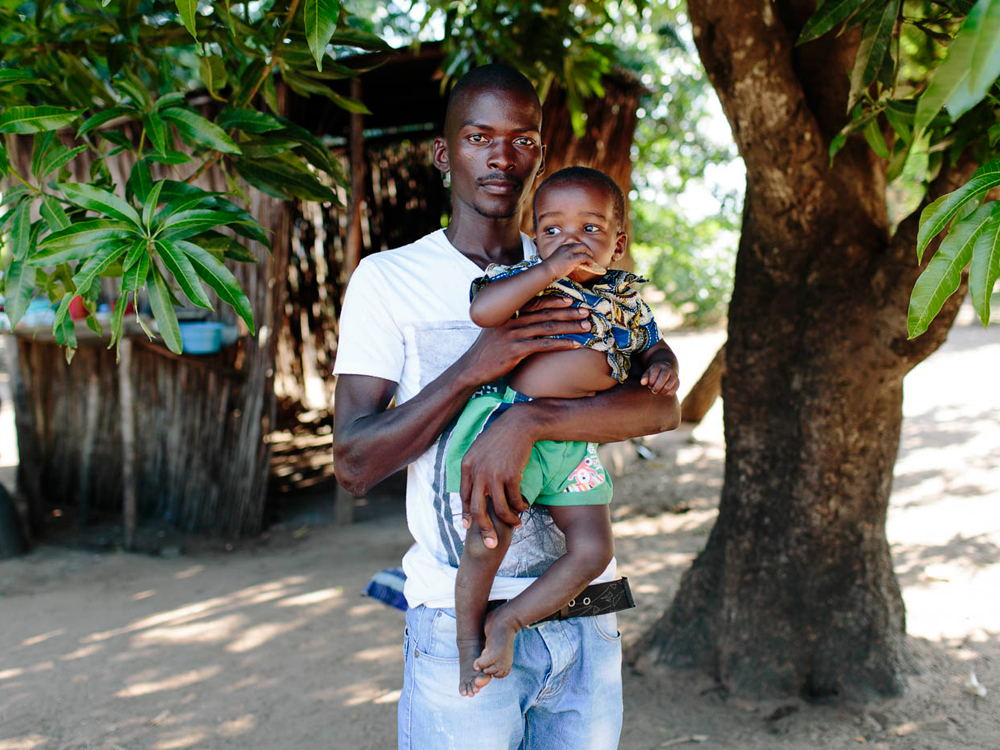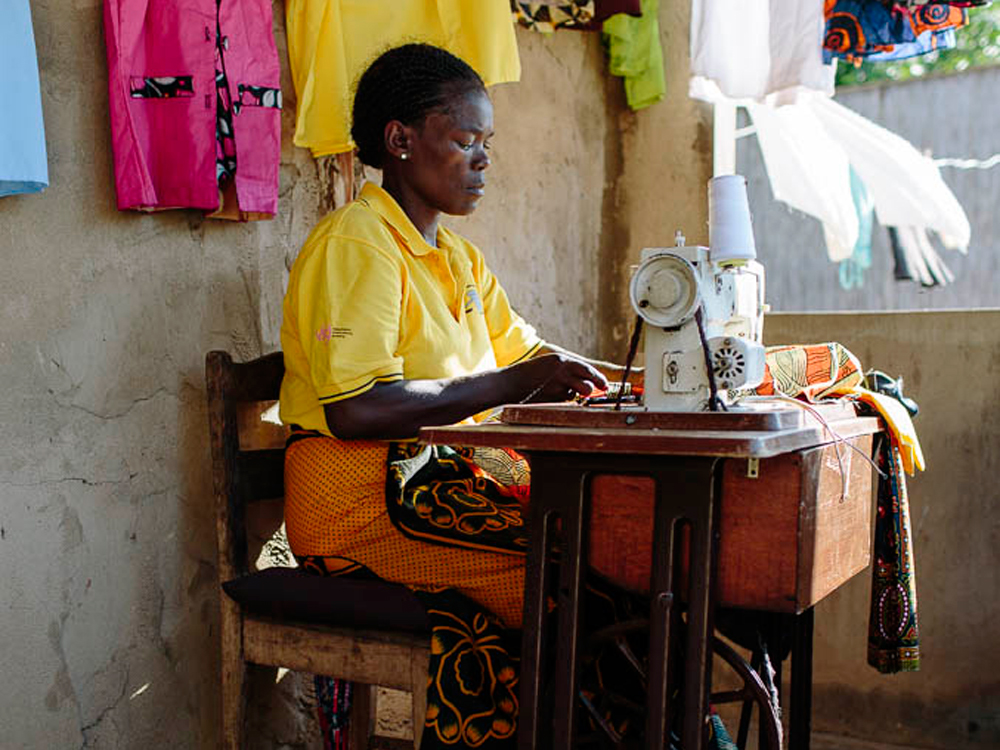International Woman's Day: How The Women Of Mozambique Are Learning To Empower Themselves
Mozambique remains one of the poorest countries on earth, ranking 178 out of 195, as per the UN’s Human Development Index.*

Celebrity news, beauty, fashion advice, and fascinating features, delivered straight to your inbox!
You are now subscribed
Your newsletter sign-up was successful
Mozambique remains one of the poorest countries on earth, ranking 178 out of 195, as per the UN’s Human Development Index.*
With few economic opportunities in their own country, many jobseekers are tempted to work in the South African mines, but it’s a dangerous job. Workplace accidents are common. Many men, who are away from home, contract HIV/AIDS through unprotected sex. Others catch TB from their infected co-workers. When a miner dies, their families back home are suddenly left without a regular income, facing utter desperation.
Women like Celeste are often worst hit. Poorly educated and alone, they need to step into the shoes of breadwinner. When her husband died from TB, Celeste had no money and a ten-year-old son, Julio, to look after. She enrolled in a VSO-backed income-generating scheme run by AMIMO, an organisation that supports migrant miners and their families. The training is delivered in partnership with Mcel, Mozambique’s mobile phone provider. Armed with new skills, Celeste started her own business and changed the future for herself and her son.

This is her inspirational story:
'My name is Celeste and I am 46 years old. I was married for ten years before my husband died. He was working in South Africa in the mines and would send money home every month. We also got some help to buy food because of his work.
That changed in 1998 when he fell sick and lost his contract. The local hospitals weren’t able to do much and he passed away later that year from tuberculosis. He was 48.
Life became so difficult for us. I had no support from his company. I only had the sewing machine my husband left me and our basic farm. I had little money. The power was cut. I didn’t have water in the house. I was raising Julio on my own and I couldn’t take him to school. He had to walk over nine miles to get there when I couldn’t afford the transport. All those changes in our life just weighed me down. We were in extreme poverty and I couldn’t see a way out.
Celebrity news, beauty, fashion advice, and fascinating features, delivered straight to your inbox!

In some ways, it’s easier when a man loses his wife. He can continue working and just bring in another woman to look after his family. It’s not easy when it’s the other way around.
Things started to turn around when AMIMO called a meeting for widows in the area. They are a group that supports migrant miners and their families. I went because I wanted to improve our lives.
They offered me training in income generation activities. I learned how to start and manage a business, how a loan can help and how I could save money. In just over a year, things started to change.
The scheme helped me to buy a cow using the money I earned from making clothes. I was lucky – the cow was pregnant so then I had two cows! I milked them every morning which gave me something to sell and something to give Julio to drink. Then I started saving money and invested in his education.
The programme also helped me to buy some discounted phone credit which I could sell at a profit to local farmers who passed by my house. That boosted my business.
This training made a huge difference to my life. When Julio was older, I paid for his driving qualifications. Now, aged 26, he works on the new road construction project in Maputo, a few hours away from our home in Xai-Xai. Most boys his age don’t even have a job.
It also means I can support my daughter-in-law, Melvina, who’s at night school. She’s studying to become a nurse. I look after my grandson while she’s at school.

I am so proud of everything I’ve achieved. I’ve done this all by myself. I can stand on my own two feet and provide for my family.
People around here respect me for what I’m doing. Actually, they can’t really believe that there’s no man in the house. I am the ‘man’ in my house!
I’ve got big plans for the future. I’m going to buy a plough for my land to improve the farm. Julio and I are going to build a big house. He’s so proud of me – he always tells me I’m the reason for his success in life.
Life can be very difficult for widows in this area. Most of them just get up in the morning and don’t know how they are going to be able to feed their families. This project needs to reach them too. Women like me have become empowered because of the training.
I’m the only person around here selling milk. No-one else is making clothes in the community. I’ve been able to employ a local boy to milk my cow. It feels like I’m helping lots of people now. This makes me feel like a powerful woman.'
Learn more about Celeste's story in the exclusive video below:
Used in articles
*The UN Human Development Index measures factors such as life expectancy, education and economy, etc, in each country.